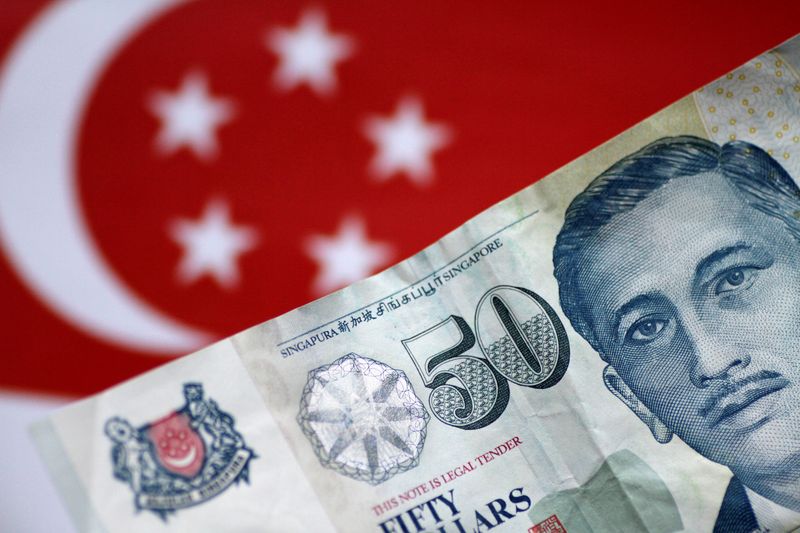
© Reuters. A Singapore dollar note is seen in this illustration photo May 31, 2017. REUTERS/Thomas White/Illustration/Files
By Xinghui Kok
SINGAPORE (Reuters) – Singapore’s key inflation rate rose at a slower pace than markets had expected last month, official data showed on Friday, opening the door for the central bank to potentially start easing monetary policy settings sooner than many anticipate.
The core inflation rate – which excludes private road transport and accommodation costs – came in at 3.1% year-on-year, well below the 3.6% forecast in a Reuters poll of economists and compared with 3.3% seen in December.
Headline inflation in January was up 2.9% from the same month last year, but also much lower than the 3.8% forecast in the poll.
“That’s an unexpectedly sharp drop in inflation pressures, given the hike in sales tax, carbon taxes and other administrative prices,” said Maybank economist Chua Hak Bin.
Chua said the central bank could move to ease monetary policy as soon as July if core inflation continues to fall quickly to 2%. He had earlier pencilled in an easing in October.
Inflation has fallen from its peak of 5.5% in January last year but economic growth has slowed.
For the whole of 2023, GDP grew 1.1%, moderating from 3.8% in 2022.
Singapore expects higher GDP growth of 1%-3% this year but warned the economic outlook was mixed because of geopolitical risks.
Last week, Deputy Prime Minister Lawrence Wong said conflicts in Europe and the Middle East can escalate, leading to price pressures due to disruptions in global energy markets and supply chains.
In January, the central bank left monetary policy settings unchanged in its first review of the year. The Monetary Authority of Singapore has increased the frequency of its reviews from twice a year to quarterly starting in 2024.
Source: Investing.com


























